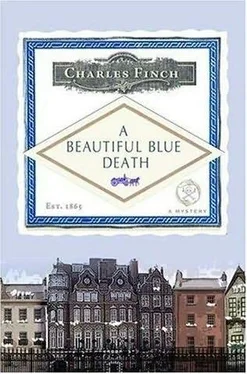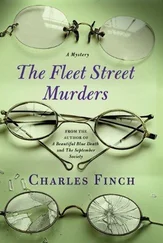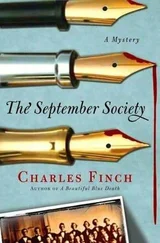Charles Finch - Beautiful blue death
Здесь есть возможность читать онлайн «Charles Finch - Beautiful blue death» весь текст электронной книги совершенно бесплатно (целиком полную версию без сокращений). В некоторых случаях можно слушать аудио, скачать через торрент в формате fb2 и присутствует краткое содержание. Жанр: Исторический детектив, на английском языке. Описание произведения, (предисловие) а так же отзывы посетителей доступны на портале библиотеки ЛибКат.
- Название:Beautiful blue death
- Автор:
- Жанр:
- Год:неизвестен
- ISBN:нет данных
- Рейтинг книги:5 / 5. Голосов: 1
-
Избранное:Добавить в избранное
- Отзывы:
-
Ваша оценка:
- 100
- 1
- 2
- 3
- 4
- 5
Beautiful blue death: краткое содержание, описание и аннотация
Предлагаем к чтению аннотацию, описание, краткое содержание или предисловие (зависит от того, что написал сам автор книги «Beautiful blue death»). Если вы не нашли необходимую информацию о книге — напишите в комментариях, мы постараемся отыскать её.
Beautiful blue death — читать онлайн бесплатно полную книгу (весь текст) целиком
Ниже представлен текст книги, разбитый по страницам. Система сохранения места последней прочитанной страницы, позволяет с удобством читать онлайн бесплатно книгу «Beautiful blue death», без необходимости каждый раз заново искать на чём Вы остановились. Поставьте закладку, и сможете в любой момент перейти на страницу, на которой закончили чтение.
Интервал:
Закладка:
The two brothers were immensely fond of each other. Each envied the other his pursuit-Lenox followed politics passionately and longed, from time to time, to stand for Parliament himself, while Edmund adored the city and often felt, rather romantically, that to crisscross it wildly, searching for clues and people, must be next to bliss. Occasionally he tried to solve the local crimes at Markethouse from his armchair, but the newspaper rarely yielded up anything more spectacular than a stolen policeman’s helmet or a missing sheep: poor fodder, he felt, for a budding detective. As a result, the first thing he always asked his brother was whether he was on a case.
Lenox walked through St. James’s Park and then went a short distance along the Thames to Westminster.
He loved going to the Houses of Parliament. He and his brother had gone with their father as children, and he still remembered eating lunch there and watching the debates from the visitors’ galleries. These days, he often visited his brother or one of his several friends there.
The buildings had burned down in 1834, when he was a boy, and had been rebuilt over the next few years. And then they had added the tall clock, called Big Ben, only five or six years previously-was it 1859? For Lenox’s money, Parliament was one of the two or three most beautiful buildings in London, in that yellowish stone unique to England, with its high towers and intricately carved walls. Its vastness alone was comforting, as if generations could rise and fall but these eight acres, these halls and rooms, would keep England safe. Nobody, on the other hand, would ever care about Big Ben.
The public, when it visited, entered at Westminster Gate, but Lenox went to a small door on the other side of the building, facing the river, and there, waiting in the hall, was Edmund. This was the members’ entrance-straight ahead, up a staircase, were the chambers of government. To the left and the right were the members’ rooms, which were closed to the public. If you took a right, you went to the dining rooms and smoking rooms of the House of Lords and the Queen Empress; to the left and you were in the branch dedicated to the House of Commons. The two brothers turned left, to Bellamy’s.
Bellamy’s was a large spacious restaurant looking over the river. Dickens had written about it-the butler Nicholas and the provocative waitress Jane-in Sketches by Boz, and their father had always told them that William Pitt’s dying words were, “Oh, for one of Bellamy’s veal pies!” It had old dark mahogany tables and smelled of cigar smoke and the waiters’ pomade. A lot of grizzled old men sat around talking grumpily, sticking as close to the fires as possible, and a lot of animated younger men took drinks at the bar.
Lenox and his brother sat at a table next to a window, under a portrait of Fox, and Edmund, staying true to form, immediately said, “Well, dear brother, and what are you working on?”
Lenox smiled. “Lovely to see you too, as always. Are young Edmund and William well? And Emily?”
“Don’t be that way, Charles, what have you got? Why, only the other day in the country we had a silver thief.”
“A silver thief! In mild Markethouse! And was he caught?”
“Well, it was not so much that there was a silver thief as that there was a matter of misplaced silver.”
“Who could have misplaced so much silver? Did you think of insurance fraud?”
“It was a fork, to be precise.”
Lenox raised his eyebrows. “One fork, you say?”
“But a serving fork, you know, so it was really quite large. And of good silver. Very well made. And old. An heirloom, really.”
“How many men were assigned to the case? Did you break up the silver ring?”
“It had fallen under a chair, you see. But I only read that the next day.”
“So it was touch and go for a turn of the sun?”
Edmund smiled. “Have your laugh.”
Lenox did laugh, and then put his hand on his brother’s arm. “Shall we order?” he said.
“Yes, yes.”
They each decided that they would have the same thing, the only thing the chef did decently: roasted mutton with new potatoes and buttered peas under, and a flood of gravy over the entire thing.
“And a bottle of claret?” said Edmund.
“Unless you have the business of the people to attend to, this afternoon?”
“No, we’re in committee.”
“Then yes.”
“Now really,” said Edmund, “stop delaying, and tell me what happened with the forgery. The Yard has refused to leak it to the press.”
“It was Isabel Lewes.”
Edmund gasped. “It couldn’t have been!”
“It was indeed.”
“She was out of London!”
“No, she wasn’t.”
“And how are you so sure?”
“There was a sapphire necklace involved.”
“Really?”
“Yes.”
“Well, please, go on!”
“Another time.”
Edmund groaned.
“At the moment, I am at work on another matter.”
“What is that?”
“You’re certain you want to hear?”
“Of course, of course!”
Just then the mutton came, and as they poured the wine and cut the meat, Lenox briefly relayed to his brother the events of the previous night and of that morning. He omitted only the name of the poison, because he didn’t want to risk being overheard.
Edmund was a little overexcited by the new case and for some reason kept saying that he was “as good as a vault” and would be happy to stay in the city to “ferret out the truth, however dark it might be.”
“It is a perplexing matter,” Lenox concluded, “because the motive of any murder is most likely to originate from one of the victim’s daily acquaintances, but none of her daily acquaintances would be likely to use such a means of murder.”
“Mightn’t the murderer have stumbled upon the poison? In Barnard’s house or elsewhere? A servant could easily do that.”
“I thought of that,” Lenox said. “McConnell sent a note over this morning, saying that only one apothecary in London sells the poison, so I mean to ask there. But I think it unlikely. It would be so easily traced to whatever house it came from.”
“But perhaps the murderer thought the fake suicide would never let the police get so far.”
“Perhaps. At any rate, I shall see the chemist this afternoon, and he can settle it. If so, the case will be solved.”
“Yes,” said Edmund. But he looked uneasy.
“Is anything the matter?” Lenox asked.
“I’m in the midst of what you might call a moral dilemma.”
Lenox looked at his brother, who was in his tweed jacket and had a spot of gravy on the old Harrow tie they both happened to be wearing that day, and at his furrowed brow, and felt an enormous surge of fondness for him.
“Tell me what it is, if you like.”
“The dilemma is whether or not I ought to.”
Lenox suddenly looked very serious. “It is related to this case?”
“It is.”
“Then you must, Edmund.”
“One man can have several loyalties to consider at once, dear brother.”
“To whom must we be loyal beyond the dead? Surely none of the family is at all involved.”
“I am loyal to my family and, as you say, to this young girl-but also to my country.”
They had finished eating. The waiter cleared the plates away in the long pause that ensued. Both men leaned back and lit cigarettes, and Lenox drank a sip of wine.
“A matter of state?” he said at last.
“Yes.”
“Then it is your choice. But you shall have my discretion as a detective and as a brother, should you choose to tell me.”
Edmund smiled. “I know that,” he said. He sighed. “I may as well.”
The two men leaned close to each other, and Edmund said, “Barnard is storing this year’s gold in his house.”
Читать дальшеИнтервал:
Закладка:
Похожие книги на «Beautiful blue death»
Представляем Вашему вниманию похожие книги на «Beautiful blue death» списком для выбора. Мы отобрали схожую по названию и смыслу литературу в надежде предоставить читателям больше вариантов отыскать новые, интересные, ещё непрочитанные произведения.
Обсуждение, отзывы о книге «Beautiful blue death» и просто собственные мнения читателей. Оставьте ваши комментарии, напишите, что Вы думаете о произведении, его смысле или главных героях. Укажите что конкретно понравилось, а что нет, и почему Вы так считаете.












